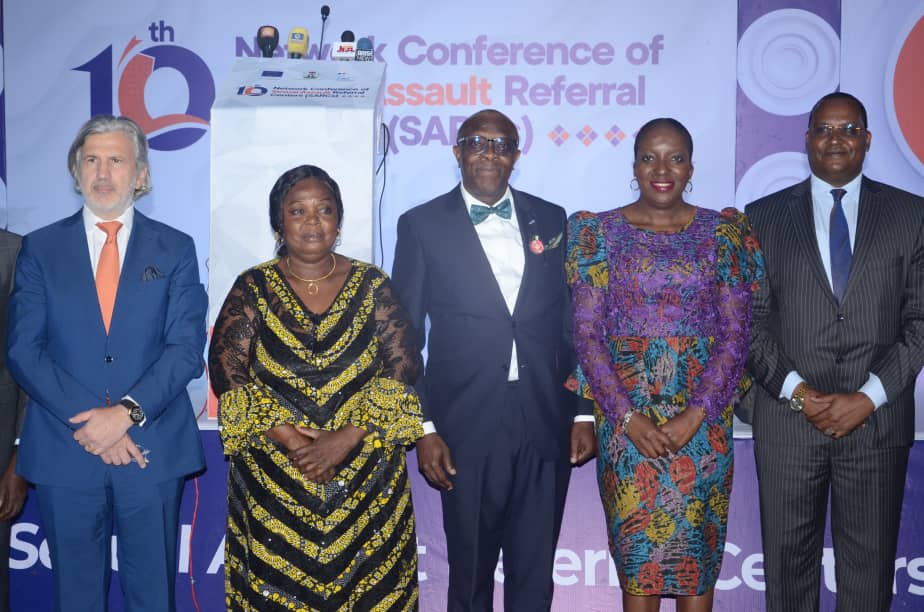EU: Survivors of gender-based violence deserve access to justice, care
The European Union (EU) has said access to justice and care for survivors of Sexual and Gender-Based Violence (SGBV) in Nigeria must remain a top priority of government and everyone. The Deputy Ambassador, European Union Delegation to Nigeria and ECOWAS, Zissimos Vergos, who stated this on Monday in Abuja, during the 10th Network Conference of […]

img 20241119 wa0006
The European Union (EU) has said access to justice and care for survivors of Sexual and Gender-Based Violence (SGBV) in Nigeria must remain a top priority of government and everyone.
The Deputy Ambassador, European Union Delegation to Nigeria and ECOWAS, Zissimos Vergos, who stated this on Monday in Abuja, during the 10th Network Conference of Sexual Assault Referral Centres (SARCs), said the number of cases of SGBV that are prosecuted are few, compared to the number of survivors.
Vergos, therefore, called on the government to take ownership of the campaign against SGBV by allocating more funding and ensuring that sexual and gender-based violence at designated institutions have all it require to address the needs of the people.
He urged Nigeria to work towards tackling the menace of Sexual and Gender-Based Violence (SGBV) against women and girls across the country.
5 players for trials in Europe as Bayelsa hosts scouting tourney
Europe’s richest man sues Elon Musk’s X
He maintained that an integrated approach remains the key to a sustainable solution to accelerating progress towards ending violence against women and girls.
He said gender-based violence is not a ‘women’s issue,’ but an issue of the society, hence, combating it requires the whole society approach.
He further said while prevention is key to breaking the vicious cycle that perpetuates violence, protection ensures safeguarding and the immediate wellbeing of survivors.
“Speaking openly about gender-based violence still can be a huge risk for survivors. The EU supports the creation of an environment where women and children are not only encouraged, but also empowered to break the silence.
“The EU’s commitment to addressing these issues, promoting gender equality, and strengthening support systems, underscores the determination to ensure that every survivor’s voice is heard and respected,” he added.
Lauding the achievements of the Sexual Assault Referral Centres (SARCs) spread across the 22 states of the country, Vergos said: “We are all pleased to see so much progress since the launch of the first centre, back in 2013. Today, there are 47 Sexual Assault Referral Centres (SARCs) across 22 states in Nigeria, with over 35,500 survivors assisted within this period.”
In her remarks, Minister of Women Affairs, Hajia Imaan Sulaiman-Ibrahim,
who was represented by Mrs. Friya Bulus, stressed that the SGBV campaign this year will afford the government, development partners, civil society organisations, and the private sector the opportunity to accelerate progress towards ending violence against women and girls.
The Attorney General of the Federation and Minister of Justice, Lateef Fagbemi, represented by Bola Odugbesan (Esq.), Director, HAGF, explained that the persistence of SGBV in Nigeria remains one of the country’s most stressful challenges requiring not just its attention but concerted action.
He said: “Over the past years, we have made significant strides in our response to SGBV. Let me be clear, these challenges, while significant, are not insurmountable.
“Based on our experiences and recommendations from our frontline staff, we are implementing several strategic interventions.”
